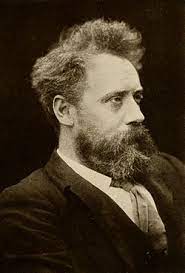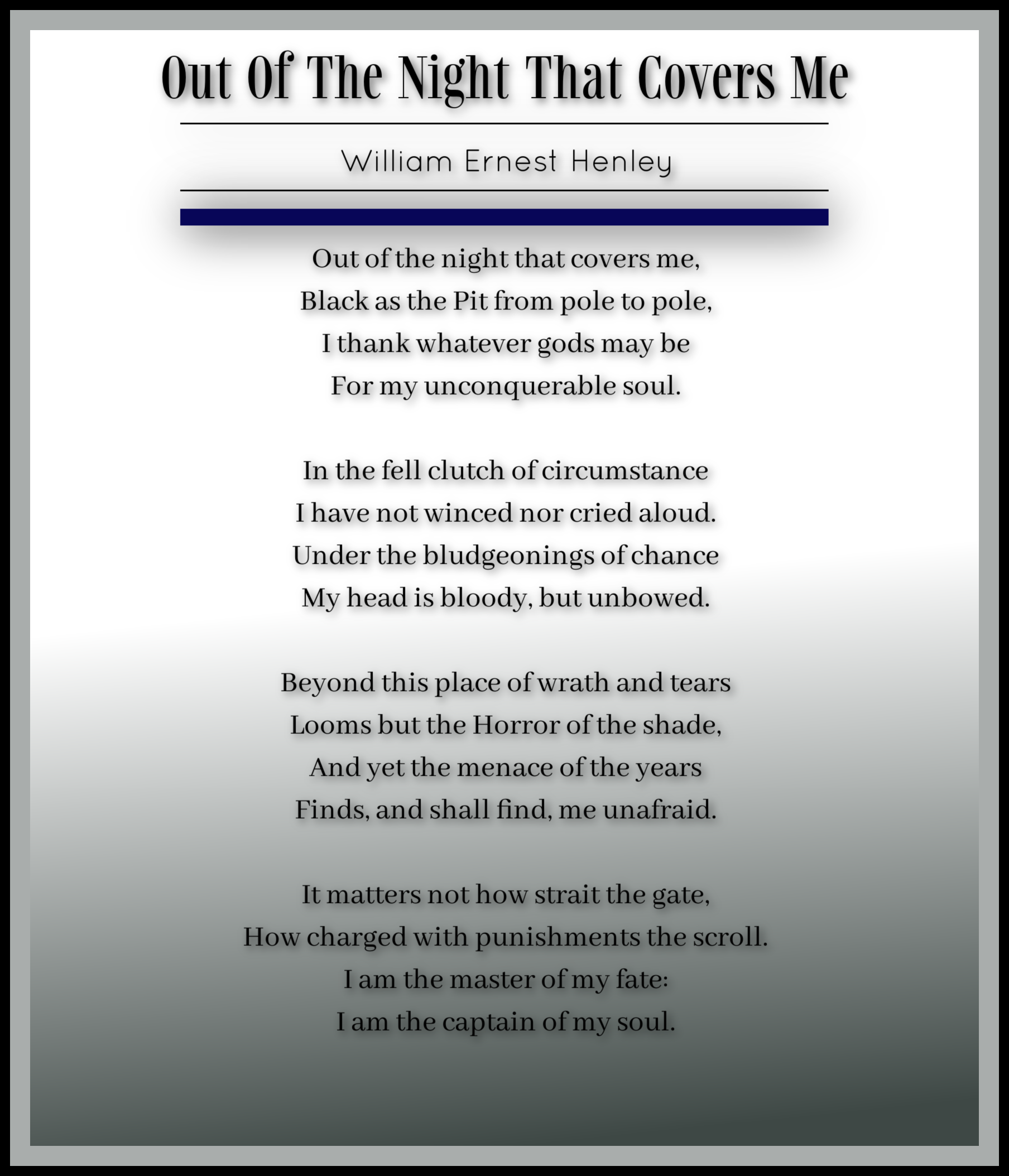
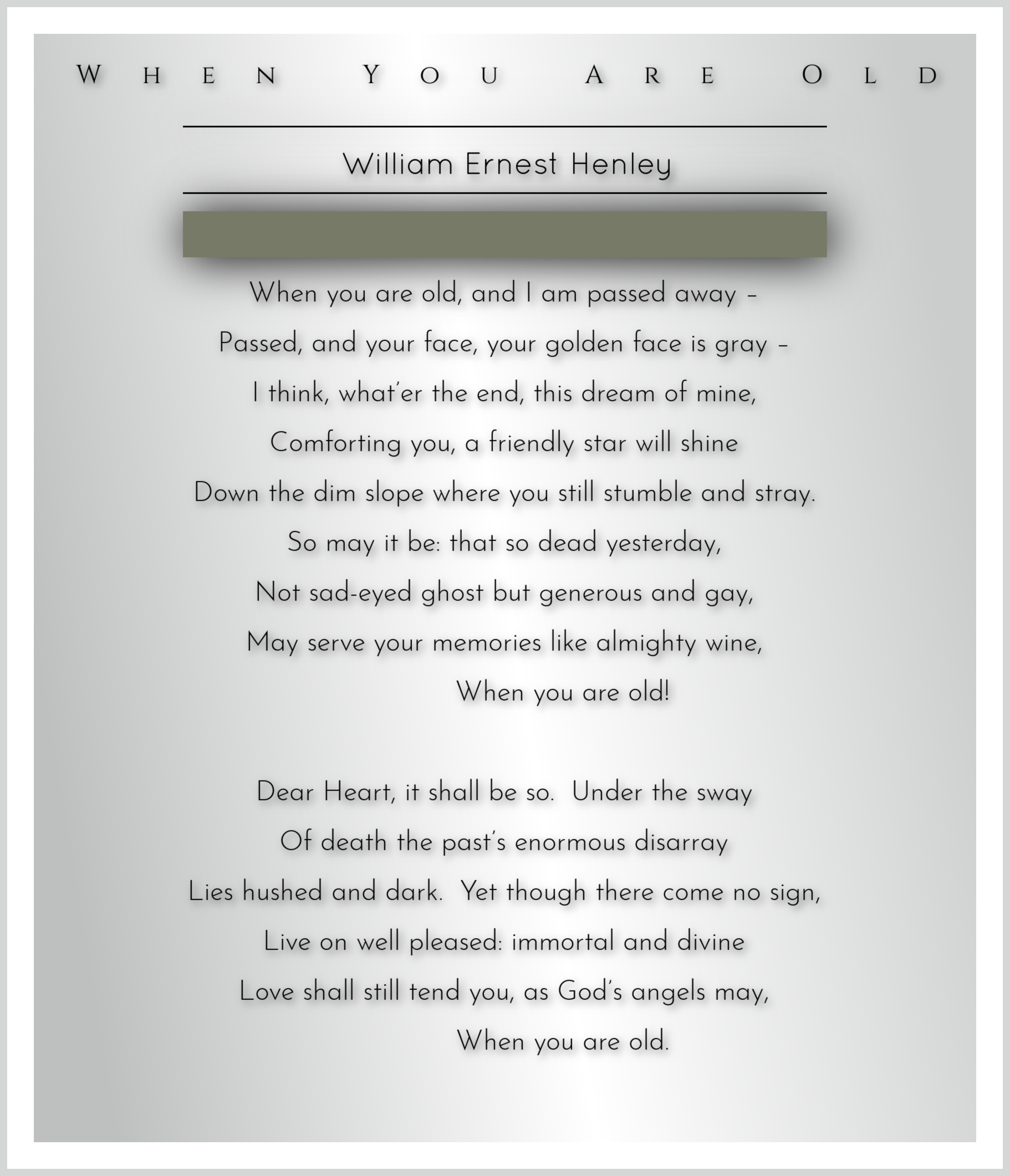
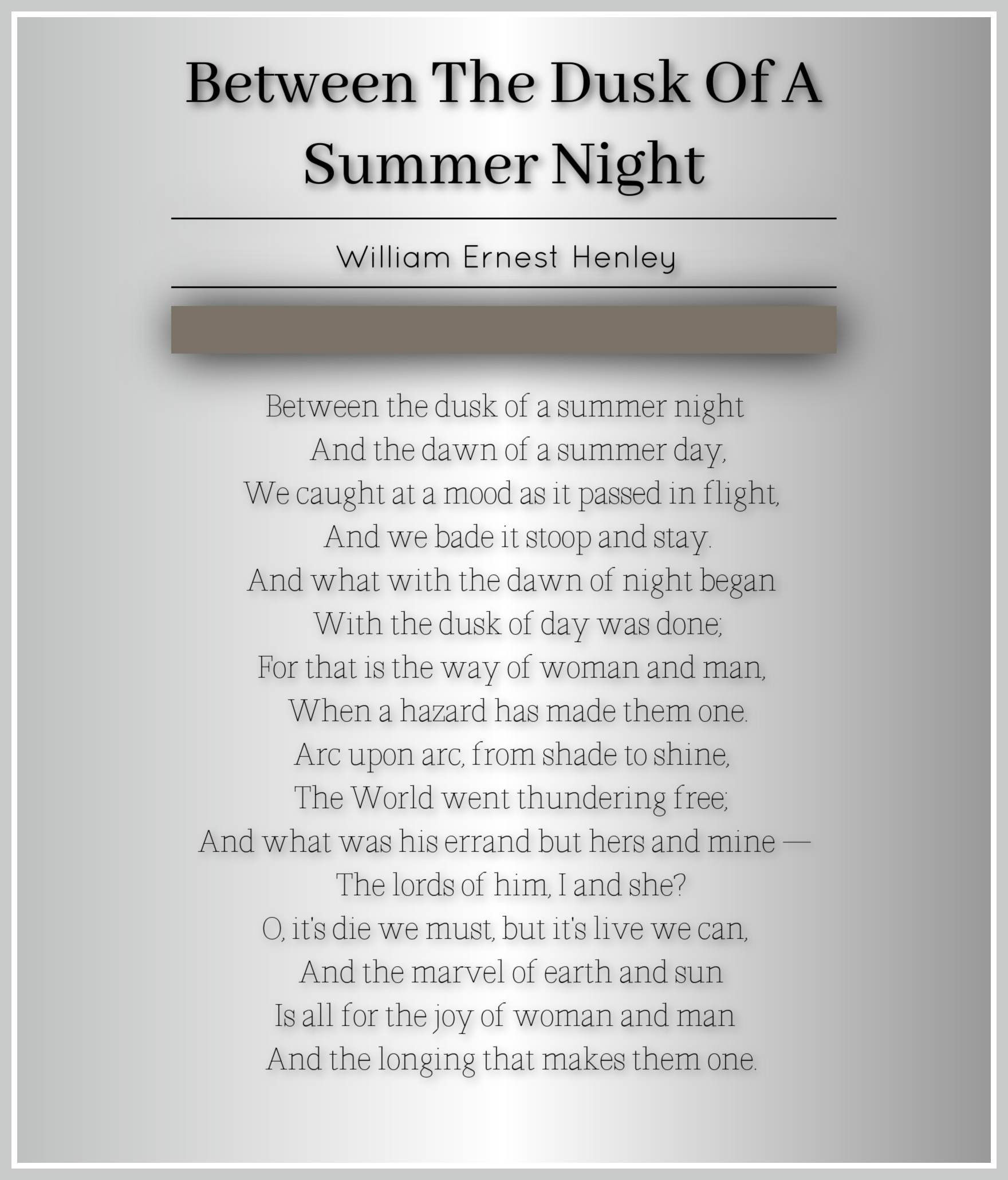
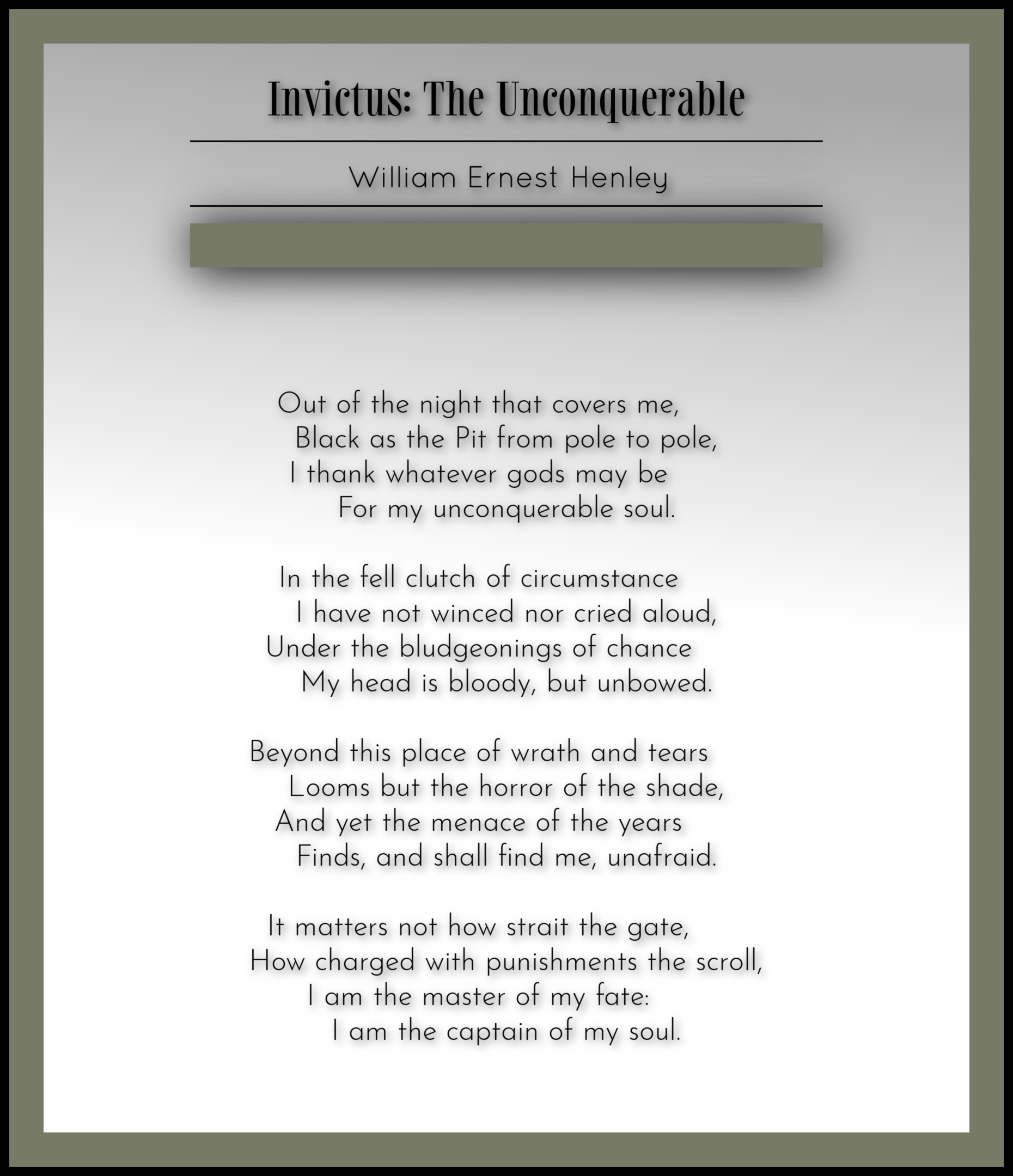
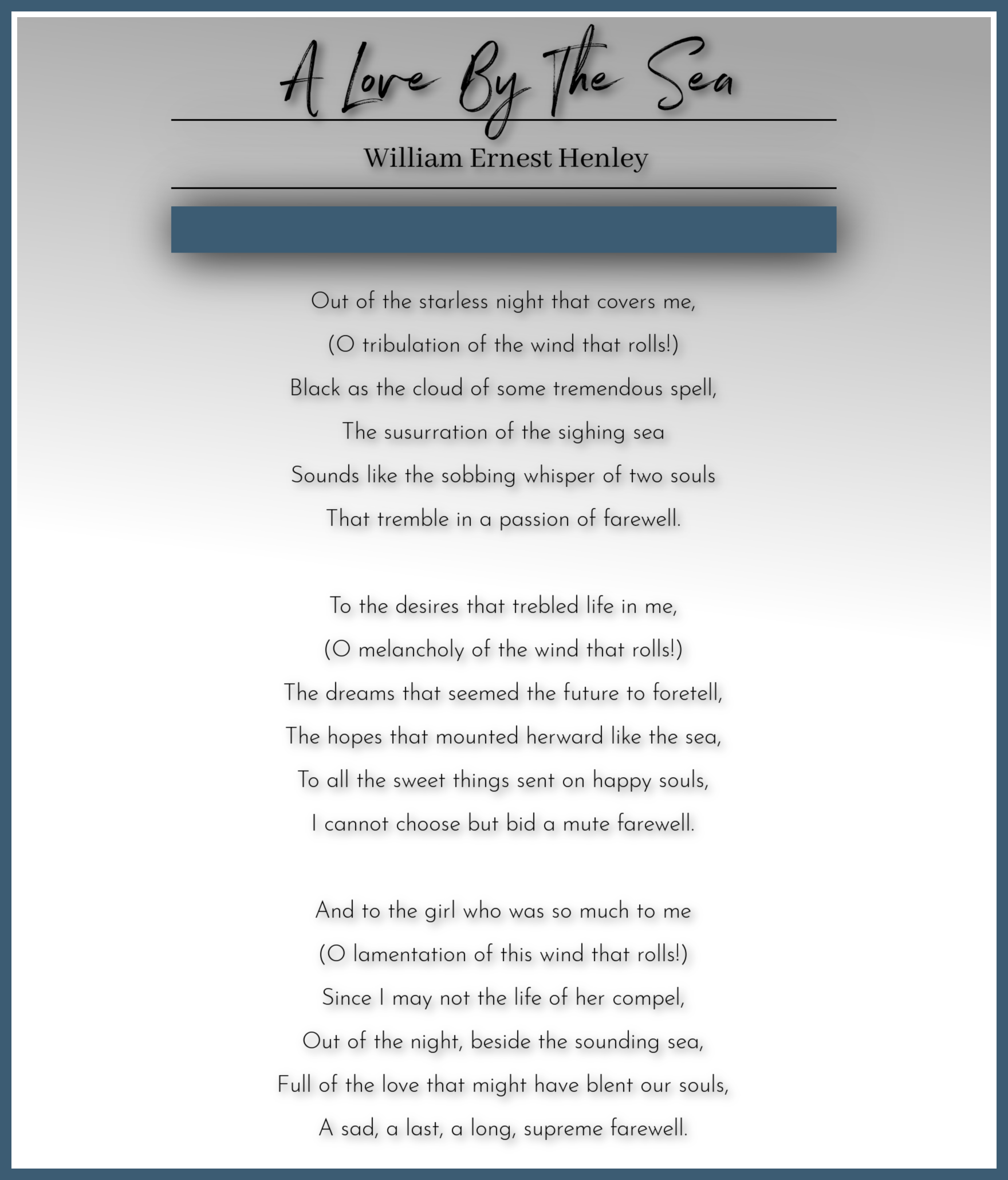
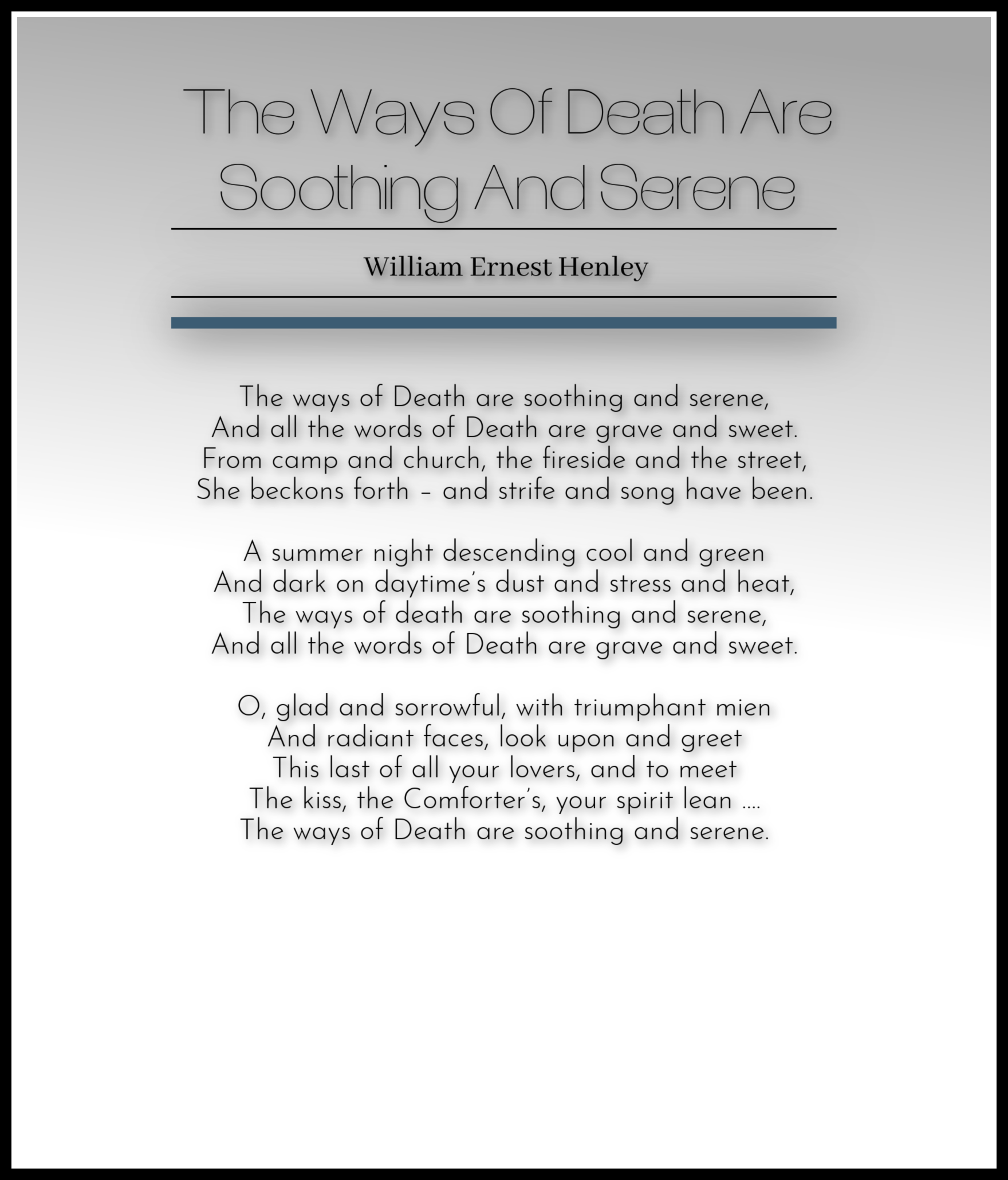
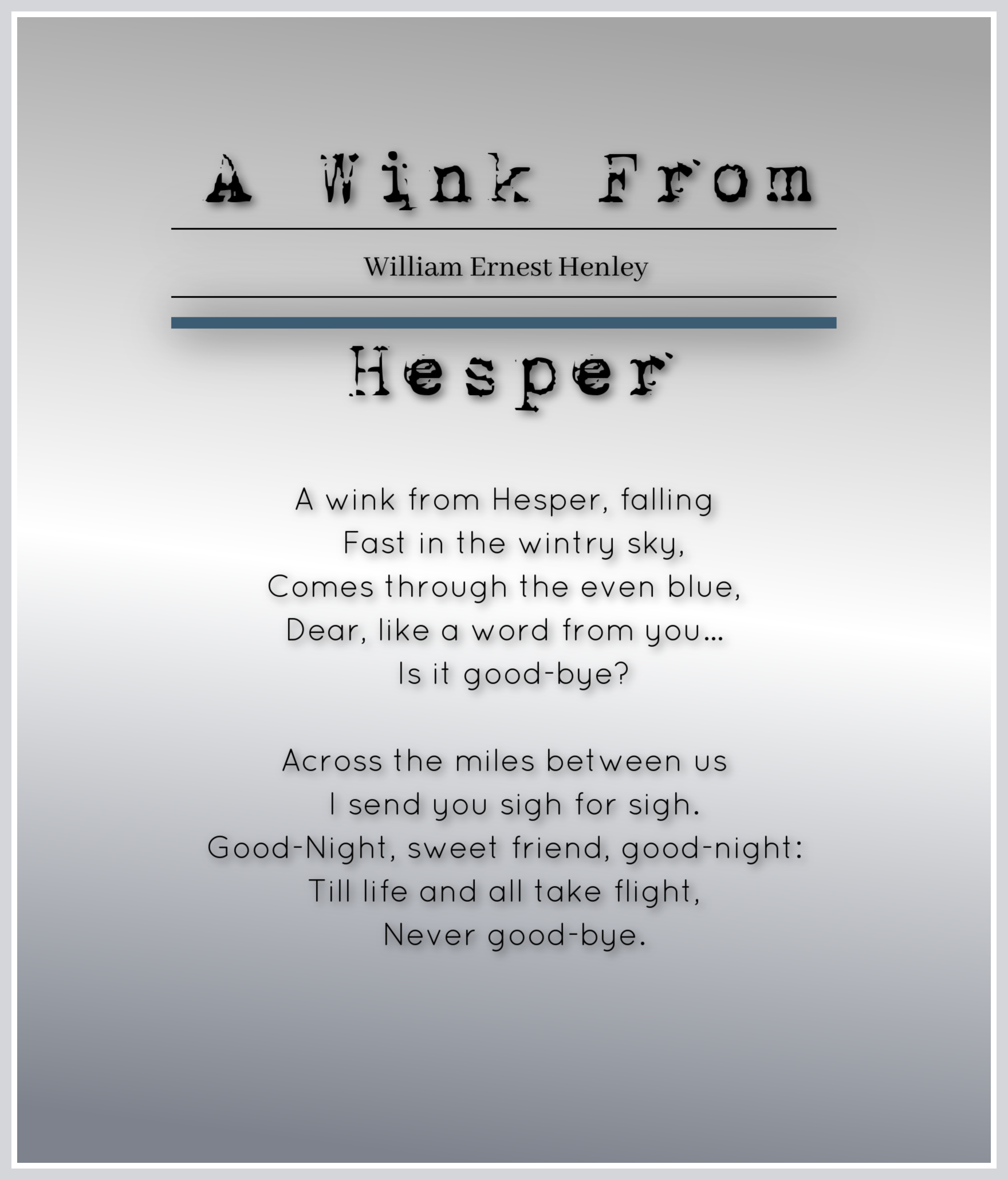
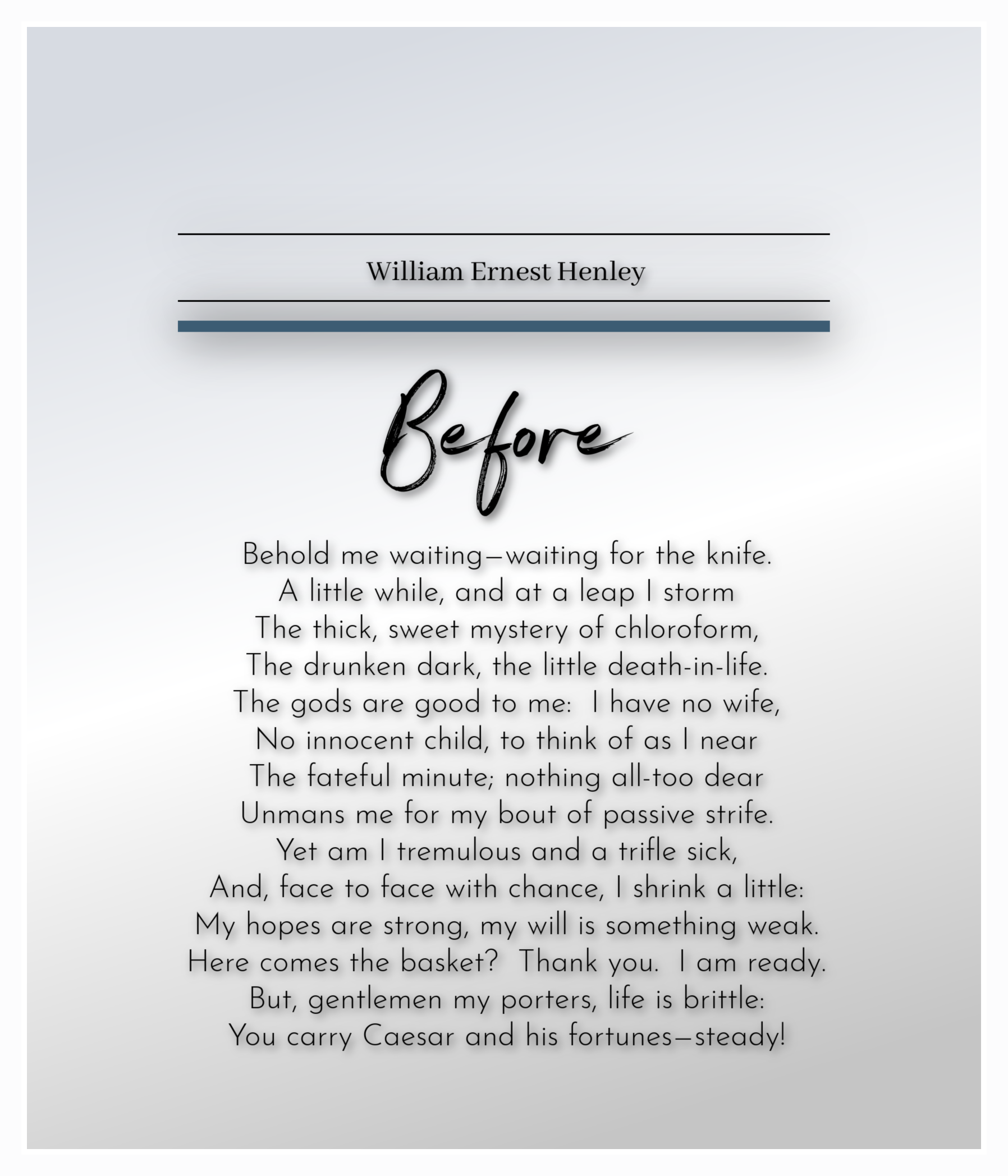
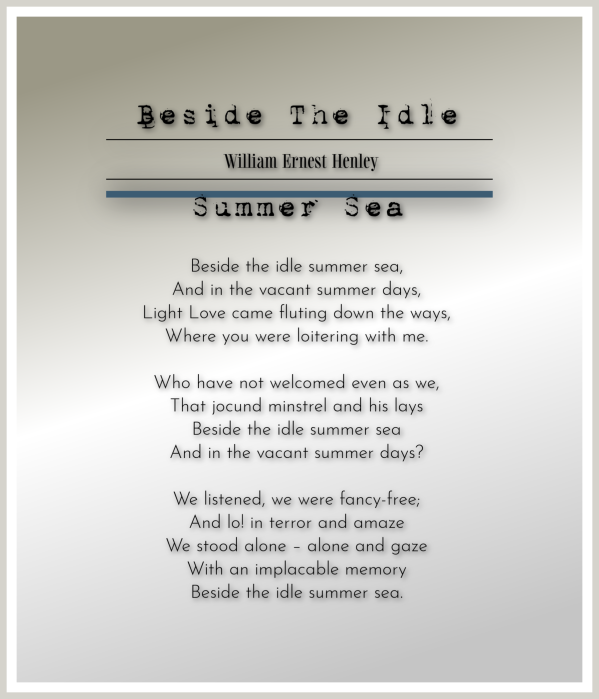
A Late Lark Twitters From The Quiet Skies
the quiet skies:
And from the west,
Where the sun, his day's work ended,
Lingers as in content,
There falls on the old, gray city
An influence luminous and serene,
A shining peace.
The smoke ascends
In a rosy-and-golden haze. The spires
Shine and are changed. In the valley
Shadows rise. The lark sings on. The sun,
Closing his benediction,
Sinks, and the darkening air
Thrills with a sense of the triumphing night—
Night with her train of stars
And her great gift of sleep.
So be my passing!
My task accomplish'd and the long day done,
My wages taken, and in my heart
Some late lark singing,
Let me be gather'd to the quiet west,
The sundown splendid and serene,
Death.
Villanelle
A dainty thing's the Villanelle.
Sly, musical, a jewel in rhyme,
It serves its purpose passing well.
A doublc-clappered silver bell
That must be made to clink in chime,
A dainty thing's the Villanelle;
And if you wish to flute a spell,
Or ask a meeting 'neath the lime,
It serves its purpose passing well.
You must not ask of it the swell
Of organs grandiose and sublime-
A dainty thing's the Villanelle;
And, filled with sweetness, as a shell
Is filled with sound, and launched in time,
It serves its purpose passing well.
Still fair to see and good to smell
As in the quaintness of its prime,
A dainty thing's the Villanelle,
It serves its purpose passing well.
Bring Her Again, O Western Wind
Bring her again, O western wind,
Over the western sea!
Gentle and good and fair and kind,
Bring her again to me!
Not that her fancy holds me dear,
Not that a hope may be:
Only that I may know her near,
Wind of the western sea!
A Thanksgiving
From brief delights that rise to me
Out of unfathomable dole,
I thank whatever gods there be
For mine unconquerable soul.
In the strong clutch of Circumstance
It has not winced, nor groaned aloud.
Before the blows of eyeless chance
My head is bloody, but unbowed.
I front unfeared the threat of space
And dwindle into dark again.
My work is done, I take my place
Among the years that wait for men.
My life, my broken life must be
One unsuccourable dole.
I thank the gods- they gave to me
A dauntless and defiant soul.
London Types: Bus Driver
He's called The General from the brazen craft
And dash with which he sneaks a bit of road
And all its fares; challenged, or chafed, or chaffed,
Back-answers of the newest he'll explode;
He reins his horses with an air; he treats
With scoffing calm whatever powers there be;
He gets it straight, puts a bit on, and meets
His losses with both lip and £ s. d.;
He arrogates a special taste in short;
Is loftily grateful for a flagrant smoke;
At all the smarter housemaids winks his court,
And taps them for half-crowns; being stoney-broke,
Lives lustily; is ever on the make;
And hath, I fear, none other gods but Fake.
There's A Regret
There's a regret
So grinding, so immitigably sad,
Remorse thereby feels tolerant, even glad.…
Do you not know it yet?
For deeds undone
Rnakle and snarl and hunger for their due,
Till there seems naught so despicable as you
In all the grin o' the sun.
Like an old shoe
The sea spurns and the land abhors, you lie
About the beach of Time, till by and by
Death, that derides you too —
Death, as he goes
His ragman's round, espies you, where you stray,
With half-an-eye, and kicks you out of his way
And then — and then, who knows
But the kind Grave
Turns on you, and you feel the convict Worm,
In that black bridewell working out his term,
Hanker and grope and crave?
"Poor fool that might —
That might, yet would not, dared not, let this be,
Think of it, here and thus made over to me
In the implacable night!"
And writhing, fain
And like a triumphing lover, he shall take,
His fill where no high memory lives to make
His obscene victory vain.
A Wink From Hesper
A wink from Hesper, falling
Fast in the wintry sky,
Comes through the even blue,
Dear, like a word from you…
Is it good-bye?
Across the miles between us
I send you sigh for sigh.
Good-Night, sweet friend, good-night:
Till life and all take flight,
Never good-bye.
Ballade Of Dead Actors
Where are the passions they essayed,
And where the tears they made to flow?
Where the wild humours they portrayed
For laughing worlds to see and know?
Othello's wrath and Juliet's woe?
Sir Peter's whims and Timon's gall?
And Millamant and Romeo?
Into the night go one and all.
Where are the braveries, fresh or frayed?
The plumes, the armours — friend and foe?
The cloth of gold, the rare brocade,
The mantles glittering to and fro?
The pomp, the pride, the royal show?
The cries of war and festival?
The youth, the grace, the charm, the glow?
Into the night go one and all.
The curtain falls, the play is played:
The Beggar packs beside the Beau;
The Monarch troops, and troops the Maid;
The Thunder huddles with the Snow.
Where are the revellers high and low?
The clashing swords? The lover's call?
The dancers gleaming row on row?
Into the night go one and all.
I Am The Reaper
I am the Reaper.
All things with heedful hook
Silent I gather.
Pale roses touched with the spring,
Tall corn in summer,
Fruits rich with autumn, and frail winter blossoms—
Reaping, still reaping—
All things with heedful hook
Timely I gather.
I am the Sower.
All the unbodied life
Runs through my seed-sheet.
Atom with atom wed,
Each quickening the other,
Fall through my hands, ever changing, still changeless.
Ceaselessly sowing,
Life, incorruptible life,
Flows from my seed-sheet.
Maker and breaker,
I am the ebb and the flood,
Here and Hereafter,
Sped through the tangle and coil
Of infinite nature,
Viewless and soundless I fashion all being.
Taker and giver,
I am the womb and the grave,
The Now and the Ever
Beside The Idle Summer Sea
Beside the idle summer sea,
And in the vacant summer days,
Light Love came fluting down the ways,
Where you were loitering with me.
Who have not welcomed even as we,
That jocund minstrel and his lays
Beside the idle summer sea
And in the vacant summer days?
We listened, we were fancy-free;
And lo! in terror and amaze
We stood alone – alone and gaze
With an implacable memory
Beside the idle summer sea.
Staff Nurse:Old Style
The greater masters of the commonplace,
REMBRANDT and good SIR WALTER—only these
Could paint her all to you: experienced ease
And antique liveliness and ponderous grace;
The sweet old roses of her sunken face;
The depth and malice of her sly, grey eyes;
The broad Scots tongue that flatters, scolds, defies;
The thick Scots wit that fells you like a mace.
These thirty years has she been nursing here,
Some of them under SYME , her hero still.
Much is she worth, and even more is made of her.
Patients and students hold her very dear.
The doctors love her, tease her, use her skill.
They say 'The Chief' himself is half-afraid of her.
London Types: Drum-Major
Who says Drum-Major says a man of mould,
Shaking the meek earth with tremendous tread,
And pacing still, a triumph to behold,
Of his own spine at least two yards ahead!
Attorney, grocer, surgeon, broker, duke—
His calling may be anything, who comes
Into a room, his presence a rebuke
To the dejected, as the pipes and drums
Inspired his port!—who mounts his office stairs
As though he led great armies to the fight!
His bulk itself's pure genius, and he wears
His avoirdupois with so much fire and spright
That, though the creature stands but five feet five,
You take him for the tallest He alive.
London Types: Beef-Eater
His beat lies knee-high through a dust of story—
A dust of terror and torture, grief and crime;
Ghosts that are England's wonder, and shame, and glory
Throng where he walks, an antic of old time;
A sense of long immedicable tears
Were ever with him, could his ears but heed;
The stern Hic Jacets of our bloodiest years
Are for his reading, had he eyes to read,
But here, where Crookback raged, and Cranmer trimmed,
And More and Strafford faced the axe's proving,
He shows that Crown the desperate Colonel nimmed,
Or simply keeps the Country Cousin moving,
Or stays such Cockney pencillers as would shame
The wall where some dead Queen hath traced her name.
|
|
